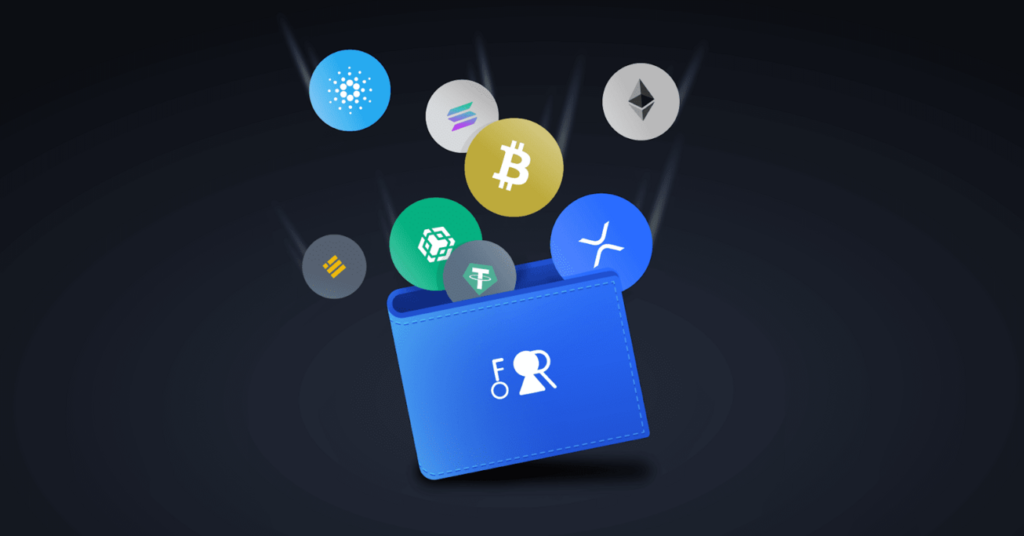As the world of cryptocurrencies continues to grow, securing your digital assets has become more important than ever. One of the primary tools for ensuring that your crypto assets are safe is a crypto wallet. But what exactly is a crypto wallet, how does it work, and why is it crucial for anyone involved in cryptocurrency? This article will provide a comprehensive overview of trust wallet, their types, and the best practices for choosing and using them.
What is a Crypto Wallet?
A crypto wallet is a digital tool that allows you to store, send, and receive cryptocurrencies like Bitcoin, Ethereum, or any other altcoins. Unlike traditional wallets that hold physical cash, crypto wallets store the cryptographic keys needed to access your digital assets. These keys consist of two parts:
- Public Key: This is akin to your bank account number. It’s shared with others so they can send you cryptocurrency.
- Private Key: Think of this as the password to your bank account. It’s used to access your funds and sign transactions. It must remain private and secure.
Since cryptocurrencies operate on decentralized networks, owning a private key means you control your digital funds, and no third party (like a bank) can interfere with your transactions.
Types of Crypto Wallets
Crypto wallets come in several types, each with its own features, security levels, and convenience. The two main categories are hot wallets and cold wallets.
1. Hot Wallets
Hot wallets are connected to the internet, making them convenient for frequent transactions. They come in two forms:
- Software Wallets: These are apps or programs you download to your computer or smartphone. Examples include Exodus, Electrum, and Trust Wallet. While easy to use, their connection to the internet makes them more vulnerable to hacking and malware attacks.
- Web Wallets: These wallets are accessed through your browser and are hosted on online platforms. Websites like MetaMask or blockchain-based wallets provide these services. They are ideal for users who require immediate access to their funds but are more susceptible to online threats.
2. Cold Wallets
Cold wallets are not connected to the internet, making them far more secure than hot wallets. They are used for long-term storage of cryptocurrency. The most common types include:
- Hardware Wallets: These are physical devices, such as the Ledger Nano S or Trezor, that store your private keys offline. Hardware wallets are considered highly secure as they are immune to online hacking attempts. However, they are more expensive than software wallets and require physical access to the device.
- Paper Wallets: A paper wallet is a physical document that contains your public and private keys. This is a more manual method of storage but can be quite secure if stored in a safe place. However, it’s important to remember that losing the paper wallet means losing access to your funds.
How to Choose the Right Crypto Wallet
Choosing the right crypto wallet depends on how often you intend to use your cryptocurrency and the level of security you require.
- For Everyday Use: If you’re an active trader or someone who regularly makes transactions, a hot wallet (software or web) will offer you ease of access, enabling quick transactions. Just remember that the convenience of hot wallets comes with the risk of potential hacks.
- For Long-Term Storage: If you’re holding onto your crypto for a long time (also known as “HODLing”), a cold wallet is the safest option. Hardware wallets are the most secure and are recommended for those who wish to store large amounts of cryptocurrency.
- For Convenience and Security Balance: Some users prefer a balance between ease of access and security. In this case, a hybrid approach can work well: use a hot wallet for smaller transactions and a cold wallet for long-term storage.
Best Practices for Crypto Wallet Security
When it comes to crypto wallets, security is paramount. Here are some best practices to ensure your funds remain safe:
- Use Strong Passwords: Whether you’re using a hot or cold wallet, always create strong, unique passwords and enable two-factor authentication (2FA) wherever possible.
- Backup Your Wallet: Most wallets provide a recovery seed or backup phrase. This is a series of words that can be used to recover your wallet if you lose access to it. Store this phrase securely and never share it with anyone.
- Be Wary of Phishing Scams: Cybercriminals often attempt to trick users into giving away their private keys or login credentials through phishing emails or fake websites. Always verify that you’re using legitimate sites and apps.
- Store Your Cold Wallet in a Secure Place: For hardware and paper wallets, consider using a safe or safety deposit box to ensure they’re protected from physical damage or theft.


